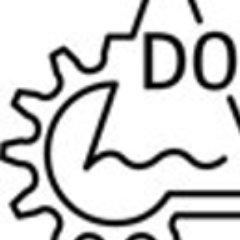Dommel Valley Group 2018: “Myths and Truths about Learning”

The Dommel Valley Group celebrates its 20th aniversary.
Pedro De Bruyckere will present a key note address on “Myths and Truths about Learning”.
This year, it seemed fitting to look at both the past and the future. What predictions have we made and followed over the last years? What came true and what did not yet materialize? What new insights have we gained, and what does it mean for the road ahead?
Joseph Kessels will participate in the panel discussion of the symposium.
In 2009 he presented a key note presentation with the title: Knowledge Productivity: an answer to the failures in knowledge management?
You may find the main issues of his address in this concise, animated summary.
With a regularity that you can almost set your clock to, the world of L&D gets introduced to new technologies, new approaches, new ways of optimizing learning. “The next big thing” always seems to be just around the corner, the next revolution always happening. In our enthusiasm to improve our work and better serve our learners, it can sometimes feel that we are always chasing the newest shiny object. So the challenge becomes: How do we separate trends and market shifts from hype? How do we separate fact from fiction, and myths from truths? How do we balance pragmatism in doing our daily work and innovation?
PANEL DISCUSSION: “Trends in L&D – past and future”
For this panel discussion, three notable speakers from the past DVG symposia have been invited: Joseph Kessels (keynote 2009), Jane Hart (keynote 2011), and Bob Mosher (keynote 2011). Together, they will be looking at the trends that they have predicted in the past, analyzing the road we’ve traveled, and making new recommendations for the future.
Prior to the event, symposium participants will get an opportunity to send in their questions as input for the panel discussion.
Joseph Kessels
Joseph Kessels is professor emeritus. He has worked at the University of Twente, University of Leiden and the Open University. He graduated cum laude in 1993, with a research thesis on the design of successful training programs.
In 1977, together with Cora Smit, he founded Kessels & Smit, The Learning Company, a consultancy and research firm specializing in training, learning and professional development.
Joseph Kessels has a specific research interest in the characteristics of learning environments that support knowledge productivity and facilitate innovation. Distributed leadership is another important research topic, specifically related to professional development.
Jane Hart
Jane is the Founder of the Centre for Learning & Performance Technologies (C4LPT), one of the world’s most visited learning sites on the Web, where she also compiles the very popular annual Top 100 Tools for Learning list.
Jane is an international speaker on modern approaches to workplace learning, the Editor of the Modern Workplace Learning Magazine, and the author of a number of books, including “How to become a Modern Professional Learner”.
She has been advising businesses for over 30 years, and currently focuses on helping them to modernize their approach to workplace learning – not just by updating their training practices but by supporting continuous independent learning.
Bob Mosher
Bob Mosher is a senior partner, and the Chief Learning Evangelist, at APPLY Synergies, a strategic consulting firm that specializes in helping learning organizations design, develop and measure effective learning and performance support strategies to meet the 5 moments of learning need.
Bob has been an active and influential leader in the learning and training industry for over 30 years and is renowned worldwide for his pioneering role in e-learning and new approaches to learning.
He is the co-author of two books: “Training for Results” and “Innovative Performance Support: Tools and Strategies for Learning in the Workflow”.
With a regularity that you can almost set your clock to, the world of L&D gets introduced to new technologies, new approaches, new ways of optimizing learning. “The next big thing” always seems to be just around the corner, the next revolution always happening. In our enthusiasm to improve our work and better serve our learners, it can sometimes feel that we are always chasing the newest shiny object. So the challenge becomes: How do we separate trends and market shifts from hype? How do we separate fact from fiction, and myths from truths? How do we balance pragmatism in doing our daily work and innovation?
